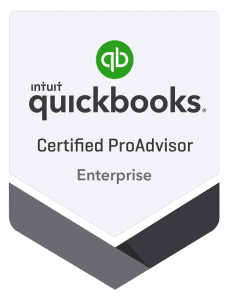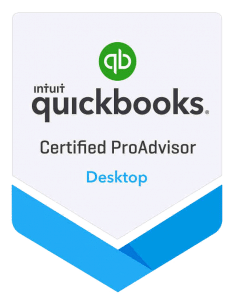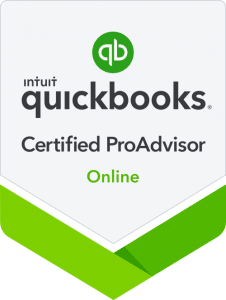Payroll plays a major role in every small business. It’s how employees get paid, how records stay straight, and how companies keep their finances clean and on time. But even small mistakes in payroll can lead to late paychecks, missed tax deadlines, or big headaches with compliance. That’s why figuring out how to run things smoothly isn’t just helpful—it’s necessary.
Improving payroll efficiency doesn’t have to mean a total overhaul. In many cases, it comes down to simplifying tasks, being consistent, and relying on tools and processes that work. Whether you’re handling payroll in-house or with help from professionals, there are steps you can take to avoid delays, reduce errors, and make payroll easier to manage.
Automate Payroll Processes
One of the best ways to save time and avoid mistakes is by switching to automated payroll tools. Manual spreadsheets and hand-calculated taxes leave room for human error. Automation speeds things up and handles many of the tedious tasks for you.
When you use payroll software, you can:
– Automatically calculate pay, tax withholdings, and deductions
– Keep organized records for each pay period
– File state and federal taxes electronically
– Set consistent payment dates through direct deposit
– Get reminders about important filing deadlines
There are plenty of payroll tools available, and many connect with bookkeeping software like QuickBooks. For example, QuickBooks Payroll lets you schedule payments, automate filings, and integrate everything into one platform. This cuts down on back-and-forth steps and helps keep things up to date.
Automating your payroll system isn’t just about speed. It also helps make sure things are accurate. When data is entered once and flows through the system, it reduces the chances of keying in the wrong numbers, skipping a step, or misplacing paperwork.
Set Clear Payroll Policies
Having easy-to-follow payroll policies may not sound exciting, but it makes a big difference in how smoothly things run. Employees know when they’ll get paid, what counts as overtime, and how time-off affects their pay. Clear policies avoid surprises and keep everyone on the same page.
Here are a few things your payroll policy should cover:
– Pay schedule (weekly, bi-weekly, monthly)
– Hours of work expected per pay period
– How to report hours, breaks, and overtime
– How vacation, sick time, and holiday pay are handled
– Deadlines for submitting timecards or digital hours
– Who to contact with payroll questions
Putting everything in writing helps keep expectations clear. When your team understands how payroll works and what’s needed from them, it reduces the back-and-forth that slows things down. It also helps new hires get up to speed faster.
Once you have your policy in place, make it easily accessible. Whether it’s a printed handbook or an online portal, make sure your team can find it whenever they need to check something. And don’t forget to review it at least once a year to make sure it still fits your operations as your business grows or shifts.
Regularly Review and Update Payroll Information
Keeping payroll information current is a key part to running things smoothly. When data isn’t up-to-date, it can lead to miscalculations, upset employees, and even potential fines. A solid routine for reviewing and updating payroll ensures that records are accurate and compliant with any changes in tax laws or employment policies.
– Conduct periodic audits of payroll records to catch and correct any discrepancies
– Make it a habit to verify employee information regularly, checking for changes in roles, benefits, or pay rates
– Update software settings as needed to reflect these changes effectively
– Keep clear documentation of all changes and updates made, as this keeps everyone informed and helps clarify any future questions or issues
Taking these steps helps keep your payroll on track and minimizes errors that can cause bigger headaches down the line. It also builds a standard practice of organization that benefits the whole business.
Provide Training and Support
Investing in training for the staff handling payroll goes a long way. When your payroll team understands the system thoroughly and knows all the ins and outs, they’re better equipped to handle challenges and keep everything running smoothly. Training gives them the confidence to use tools effectively and spot potential problems before they become significant.
Consider the following when setting up training:
– Offer courses in using payroll software for efficiencies and updates
– Provide refresher sessions on tax regulations and compliance requirements
– Encourage cross-training so more employees can manage the system if needed
– Set up regular Q&A sessions to address any concerns and offer support
Ongoing training and support ensure that staff remain confident and knowledgeable. This proactive approach keeps your payroll processes efficient and reduces the chance of errors, making the entire payroll operation more reliable.
Payroll That Works All Year Long
Implementing these tips helps create a payroll system that functions smoothly throughout the year. By automating processes, setting clear policies, keeping information current, and providing regular training, businesses can reduce errors, save time, and stay on top of compliance. These practices also make workflows easier and let your team focus more on customers, growth, and goals.
Keeping payroll efficient doesn’t mean perfection—it means consistency. Every business has its hiccups, but when you put smart practices in place, those hiccups become easier to manage. With the right tools and support system, you’ll be better equipped to handle each pay cycle with fewer surprises and less stress. That leads to happier employees, more accurate records, and a stronger grip on your operations overall.
Take the stress out of payday with support you can count on. At Cloud Bookkeeping, our small business payroll services are designed to simplify your process, reduce errors, and give you time back to focus on your team and goals. Reach out today to learn how we can make payroll one less thing to worry about.






